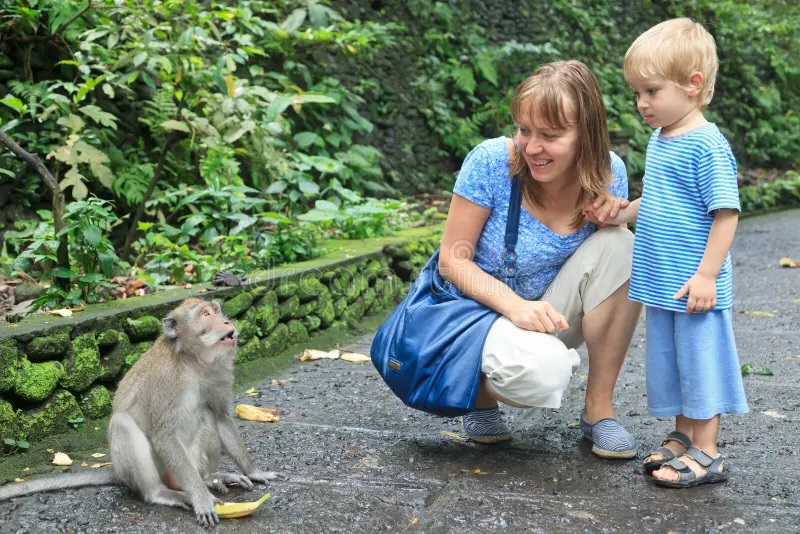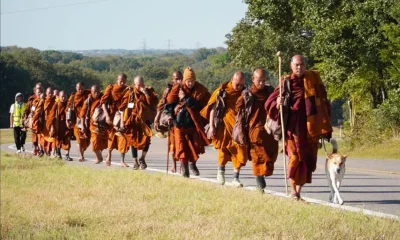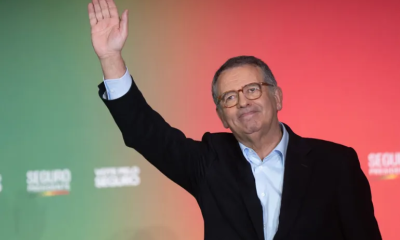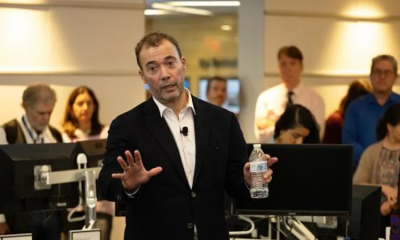Opinion
2022: Just another ‘Happy New’ year?

Is it going to be another ‘New Year’ with only the usual change of calendars? Or, one marked by a more judicious change of cooking methods: a shift from the cooker fitted with a self-immolation gas-trick contrivance, to a multipurpose rice-cooker? By the way, one would say that “long live litro!” is a mediocre use of alliteration to heighten sarcasm, but even such justifiable cynicism appears a bit too crude in a social context; where people’s unashamed greed for money seems to have eclipsed even the most rudimentary concern for the lives of their fellowmen. Sporadic gaseous explosions would have amply compensated for the want of seasonal cheer, if only they had occurred without taking innocent lives or causing material harm and island-wide trauma.
Coming back to the New Year, all of us have, as usual, the unending hope of better times ahead, despite all the bad signals. 2021 proved to be an unmasking of the worst vices of humans: political impudence, verbiage and cronyism, blatant abuse of power, profiteering at every turn – even at the expense of Corona victims, callous disregard for the poor, vulgar display of wealth, insolence and political clout, wheeling and dealing and, last but not least, religious blinkeredness of the worst type as shown in the brutal killing of the Sri Lankan, Priyantha Kumara Diyawadana in Sialkot, Pakistan. It provided a heart-rending climax to a series of tragicomic episodes.
Of course, none of the above excesses went without eliciting responses of indignation and shock, but all in vain. Hapless people, who have been accustomed to witnessing the culprits going undaunted and unpunished, have no option but to adapt themselves to the relentless pattern of increasing insolence, and increase their capacity for shock absorption. As for the ruling party, they know that the Opposition’s election-oriented bark, being mere political theatrics as usual, is worse than its post-victory bite. Hence, they have no fear of the latter’s threats of reprisals that they jolly well know are meant for the ready consumption of the irate masses.
Aren’t the frequent festivities, including two ‘New Year’ festivals in January and April, innocently working as painkillers to temporarily make us forget a perpetuating illness? If not, why do we long for them so much? The freethinker, Dr. E.W. Adikaram, used to say that the more festivals a society needs as temporary distractions, the more ailing it is. In other words, if enough happiness is attainable in your day-to-day life: what you do for a living, your personal relationships and how productively you spend your leisure, most people would not have to count much on special ‘happiness days’, so to speak. Perhaps, this is why you hear cynics say, “if you were moneyed, you would have Christmas / New Year every day.” Political leaders on both sides never miss an opportunity to wax eloquent about the significance of each festive occasion, because they know better than to waste such seasonal palliatives for the crowds. The grander you make the carnivals appear to the masses, the more ardently they invest in them and the more stoutly they bear their daily grind, which they attribute to their karma or lot in life.
Celebrations are all well and good, but they cannot solve the chronic social maladies built into unsound structures, be they political, economic, ideological or cultural; and it would be prudent to have the fun, not forgetting that we have stuck to the rituals for donkey’s years without any of them helping us to get over our familiar problems, which we complacently attribute to subjective factors. It’s a pity if festivals are allowed to be felt as rewards for our ‘forbearance’ when, in fact, it is nothing but our apathy and powerlessness, which all sorts of fraudsters dutifully applaud as people’s intelligence and decency.
The sad fact is, our excited and unquestioning adherence to formalities on the calendar unwittingly helps us to stick to our hoary political, ethnic, and religious guns, all the more zealously. For ages, we have been conned by our political saviours, and sedated by other manipulating agents and institutions. This has erected barriers between us and the so-called political, religious or ethnic ‘others’, without many of us recognising the overt and covert propaganda or brainwashing concealed in it, no matter whichever euphemism you may use to call it. This has resulted in a prolonged numbness, which we variously ‘interpret’ as devotion, patriotism, nationalism, faith etc., which has created ever-elusive and toxic fault lines in society.
The sad paradox is that the outcomes are everywhere, but intangible. Where have our political loyalties brought us? We have been seeing mighty ‘differences’ in political parties that are all but identical in the way they have governed the country. Our acquired political, ethnic and religious ‘identities’ have created imaginary foes and we have seen the results. Nonetheless, complacency remains to be the rule, occasional ‘shock’ being the exception. The Sialkot tragedy is just the tip of a multifaceted iceberg.
Surely, it doesn’t pay to be pessimistic, but no amount of optimism will compensate for addiction to familiar placebos. Everybody talks about the need for change. However, the problem is that most of them are convinced that many familiarised ‘structures’ should not change. It’s time they looked long and hard at those seemingly indispensable and unchangeable ‘constructs’ that make them stiff and immobile, in some respects to the detriment of overall progress.
However, all this doesn’t mean that seasonal greetings are in any danger of losing their social relevance and, so, yes. Happy New Year!
SUSANTHA HEWA
Opinion
Education needed about people not feeding wildlife

Being wildlife enthusiasts and bird watchers we took a river “safari” during a recent family trip to Bentota. We were dismayed to see that it seems to be the standard practice to feed the monkeys, I think they were the purple faced langurs, that were encountered on the river banks. Each boat that passed by stopped with boxed fruit, coconut and other odds and ends to feed them.
We managed to stop our guy from doing so but faced derision and laughter that we shouldn’t be afraid of monkeys. We tried to explain to him that this is a plague affecting Sri Lanka; elephants being fed on road sides and even in national parks, monkeys being fed from hotel balconies and apparently during river boat rides, birds being fed on hotel terraces etc.
This was met with further mockery and amused dismissal. An effort to make them understand that this was their livelihood that they were destroying it in this manner sailed over their heads. They even have a picture of a baby crocodile on the shoulders of a tourist on their billboard.
We need to consider the following:
Educate such tour operators about the importance of not interfering with the environment and the behaviour of wild animals.
Include education and training in the hotel school, and in schools in tourist resort towns about their duty and responsibility to the environment and the ecosystem on which we all depend.
If it is not already the case such operators should have licenses that should be revoked and fined if found to be engaging in such destructive acts.
Tamara Nanayakkara
Opinion
Capt. Dinham Suhood flies West

A few days ago, we heard the sad news of the passing on of Capt. Dinham Suhood. Born in 1929, he was the last surviving Air Ceylon Captain from the ‘old guard’.
He studied at St Joseph’s College, Colombo 10. He had his flying training in 1949 in Sydney, Australia and then joined Air Ceylon in late 1957. There he flew the DC3 (Dakota), HS748 (Avro), Nord 262 and the HS 121 (Trident).
I remember how he lent his large collection of ‘Airfix’ plastic aircraft models built to scale at S. Thomas’ College, exhibitions. That really inspired us schoolboys.
In 1971 he flew for a Singaporean Millionaire, a BAC One-Eleven and then later joined Air Siam where he flew Boeing B707 and the B747 before retiring and migrating to Australia in 1975.
Some of my captains had flown with him as First Officers. He was reputed to have been a true professional and always helpful to his colleagues.
He was an accomplished pianist and good dancer.
He passed on a few days short of his 97th birthday, after a brief illness.
May his soul rest in peace!
To fly west my friend is a test we must all take for a final check
Capt. Gihan A Fernando
RCyAF/ SLAF, Air Ceylon, Air Lanka, Singapore Airlines, SriLankan Airlines
Opinion
Global warming here to stay

The cause of global warming, they claim, is due to ever increasing levels of CO2. This is a by-product of burning fossil fuels like oil and gas, and of course coal. Environmentalists and other ‘green’ activists are worried about rising world atmospheric levels of CO2. Now they want to stop the whole world from burning fossil fuels, especially people who use cars powered by petrol and diesel oil, because burning petrol and oil are a major source of CO2 pollution. They are bringing forward the fateful day when oil and gas are scarce and can no longer be found and we have no choice but to travel by electricity-driven cars – or go by foot. They say we must save energy now, by walking and save the planet’s atmosphere.
THE DEMON COAL
But it is coal, above all, that is hated most by the ‘green’ lobby. It is coal that is first on their list for targeting above all the other fossil fuels. The eminently logical reason is that coal is the dirtiest polluter of all. In addition to adding CO2 to the atmosphere, it pollutes the air we breathe with fine particles of ash and poisonous chemicals which also make us ill. And some claim that coal-fired power stations produce more harmful radiation than an atomic reactor.
STOP THE COAL!
Halting the use of coal for generating electricity is a priority for them. It is an action high on the Green party list.
However, no-one talks of what we can use to fill the energy gap left by coal. Some experts publicly claim that unfortunately, energy from wind or solar panels, will not be enough and cannot satisfy our demand for instant power at all times of the day or night at a reasonable price.
THE ALTERNATIVES
It seems to be a taboo to talk about energy from nuclear power, but this is misguided. Going nuclear offers tried and tested alternatives to coal. The West has got generating energy from uranium down to a fine art, but it does involve some potentially dangerous problems, which are overcome by powerful engineering designs which then must be operated safely. But an additional factor when using URANIUM is that it produces long term radioactive waste. Relocating and storage of this waste is expensive and is a big problem.
Russia in November 2020, very kindly offered to help us with this continuous generating problem by offering standard Uranium modules for generating power. They offered to handle all aspects of the fuel cycle and its disposal. In hindsight this would have been an unbelievable bargain. It can be assumed that we could have also used Russian expertise in solving the power distribution flows throughout the grid.
THORIUM
But thankfully we are blessed with a second nuclear choice – that of the mildly radioactive THORIUM, a much cheaper and safer solution to our energy needs.
News last month (January 2026) told us of how China has built a container ship that can run on Thorium for ten years without refuelling. They must have solved the corrosion problem of the main fluoride mixing container walls. China has rare earths and can use AI computers to solve their metallurgical problems – fast!
Nevertheless, Russia can equally offer Sri Lanka Thorium- powered generating stations. Here the benefits are even more obviously evident. Thorium can be a quite cheap source of energy using locally mined material plus, so importantly, the radioactive waste remains dangerous for only a few hundred years, unlike uranium waste.
Because they are relatively small, only the size of a semi-detached house, such thorium generating stations can be located near the point of use, reducing the need for UNSIGHTLY towers and power grid distribution lines.
The design and supply of standard Thorium reactor machines may be more expensive but can be obtained from Russia itself, or China – our friends in our time of need.
Priyantha Hettige
-

 Business4 days ago
Business4 days agoAutodoc 360 relocates to reinforce commitment to premium auto care
-

 Midweek Review4 days ago
Midweek Review4 days agoA question of national pride
-

 Opinion3 days ago
Opinion3 days agoWill computers ever be intelligent?
-

 Midweek Review4 days ago
Midweek Review4 days agoTheatre and Anthropocentrism in the age of Climate Emergency
-

 Editorial6 days ago
Editorial6 days agoThe JRJ syndrome
-

 Opinion4 days ago
Opinion4 days agoThe Walk for Peace in America a Sri Lankan initiative: A startling truth hidden by govt.
-

 Foreign News6 days ago
Foreign News6 days agoPortugal elects Socialist Party’s Seguro as president in landslide
-

 Foreign News7 days ago
Foreign News7 days agoWashington Post chief executive steps down after mass lay-offs













